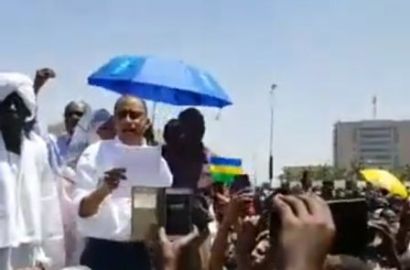Transitional parliament to be formed immediately after signing peace: Sudan’s FFC
March 22, 2020 (KHARTOUM) – The ruling coalition of Forces for Freedom and Change (FFC) announced the formation of the Transitional Legislative Council immediately after signing a peace agreement with the Sudanese Revolutionary Front (SRF) on the ninth of next April.

In a statement issued on Saturday evening after a meeting of its central council, the ruling coalition said, that the FFC leadership was briefed about a plan for the formation of the Transitional Legislative Council including the representation of all components of the peace forces and resistance committees.
“All discussions must be completed so that the Legislative Council is formed, immediately after the signing of the peace agreement, on the ninth of April, without any additional delay,” reads the statement.
The Council further said that consultations with the military component of the sovereignty council will take place on the 33% of seats reserved to the forces that backed the revolution without being a signatory of the FFC declaration.
The Constitutional Document, signed between the FFC and the dissolved military council grants 67% of the parliament’s seats to the coalition forces and reserved the remainder to the non-signatories of the FFC Declaration.
For the representation of the armed groups, the Sudanese Revolutionary Forces are included in the 67% of the FFC while the SPLM-N al-Hilu and any other armed group outside the SRF are included in the 33%.
The FFC council called to accelerate the negotiations with the SPLM-N al-Hilu, which refuses to engage in peace talks before to include the secular state and seld-determination for the Blue Nile and South Kordofan in the agenda of the talks.
In the same vein, Council called to initiate talks with the Sudan Liberation Movement, led by Abdel Wahid al-Nur, who refuses to join the Juba process saying it is about power-sharing but does not address the root causes of the conflict in Darfur.
The regular meeting of the FFC leadership also discussed the hot issue of the difficulties facing the committee tasked with dismantling the former regime after accusations that the military component obstructs its activities.
“The Council called on the Transitional Authority to support this committee and enable it to complete its tasks through the dismantling committees in the states, localities, and ministries,” stressed the statement.
(ST)
